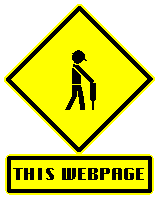
And the Word was made flesh, and dwelt among us...
In my younger days, I did not have the sanity to write. I dreaded reading. I loathed my composition classes to an insurmountable degree.
School did not teach me to appreciate the power of the written word. They wanted me to read 12-chapter novels, hundreds of pages long, and then write 20 paragraphs (with sources and citations) explaining the whole thing.
My ADHD self had no time for such ludicrous tasks, and I would have to pay the price with my grade. Damned if I did, damned if I didn't.
Over time, however, I learned to appreciate not just paragraphs, but even the individual words that build them. Unfortunately, this "skill" came long after it was useful in school. Fortunately, it came just in time for the rest of my life.
The power of the word
They say the pen is mightier than the sword… and it’s no joke, man. There’s this passage in the Bible that states:
“In the beginning was the Word, and the Word was with God, and the Word was God”
You can use a lot of things to describe a "word," but when the Bible itself associates the "word" with God... that's more profound than you think. Put aside your "I put the Bible in the fiction section of the library" mentality for a second and think about it - the ability to form a "word" is undoubtedly a transcendent ability, separating the human from other species.
Every word you choose has a meaning imbued within it. A meaning carved by the thousands upon thousands of generations that have used it (or some alteration of it).
A single word is powerful, but then you start using multiple words to form sentences, and then you start using those sentences to form paragraphs, and so on.
If your words are carefully chosen and your sentences are beautifully constructed and your paragraphs shoot to kill, that's how you build cities. That's how you empower civilizations. That's how you pave the path for posterity... or tear it apart.
Mastery of the word helps to tame some of the early monkey instincts built into us. Mastery of the word means you can pick apart the arguments of your opponents with ease, and you become more capable of seeing through the bullshit and lies, and you become more capable of forming your own opinions rather than relying on the center mass of a cult of personality to spoon feed you their flawed ideas and beliefs.
When you learn to write, you learn to think. If you can think, you've already separated yourself from the masses of ants out there.
Read the dictionary. Admire the definitions that the thousands of generations before you have concocted to describe the reality around you.
You are harnessing a power found nowhere else in the animal kingdom. Nowhere else in the universe. A power linked to God. Keep that in mind when you start writing next time.
But who asked?
The flow of information is too much. Our attention spans have vanished. The average Zoomer is becoming more used to the TikTok (or Vine) format, which means each video has to be 20 seconds or less. Each video needs two or even three videos on top of that to keep them hooked. Anything longer than half a paragraph now makes you look crazy. Any word longer than 6 letters and they'll think you're pretending to be smart.
Language can be beautiful. Don't let words like "ostentatious" or "esplanade" become archaic just because some ant, incapable of ingesting knowledge without a thousand flavors, doesn't understand them. Point at them and laugh.
Moving on, I feel that the value and sanctity of writing has diminished tremendously. Everyone now has access to a device that amplifies their drivel and outrage, both profound and inane.
Worse than the worsening average attention span is the worsening legitimacy of anything you read in general. The introduction of tools like ChatGPT means the next book you pick up could very well be vomit from an advanced word predictor.
There will never be another "great book." There will never be another like Shakespeare, Orwell, F. Scott Fitzgerald, or Emily Dickinson. There will never be another political document taken as seriously as the Declaration of Independence.
Look at any list of "top writers" and observe how few people are mentioned after the 1950s.
Much like the current situation in the music industry, where anyone can download a digital audio workstation. A third of the people you meet in any room are probably "musicians" to some degree.
The entry level is so low that the trash and the treasure are almost indistinguishable.
“The moral I draw is that the writer should seek his reward in the pleasure of his work and in release from the burden of this thoughts; and, indifferent to aught else, care nothing for praise or censure, failure or success.”






Comments